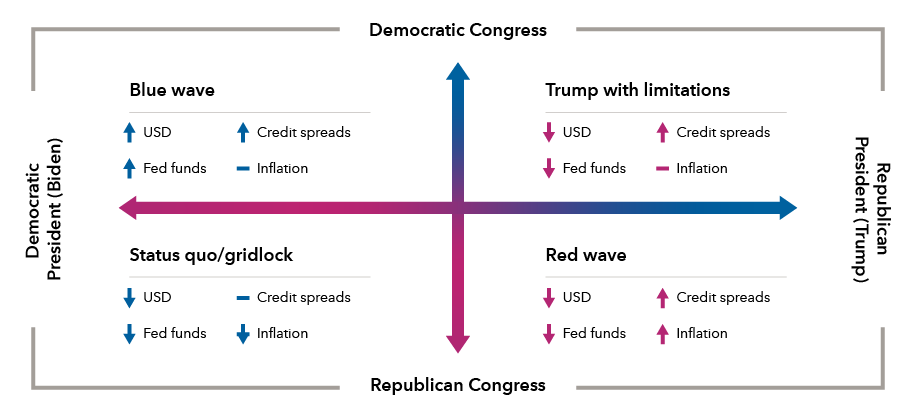US Election 2024: What investors need to know
admin 2024-05-30 8827
With Biden and Trump set to square off in November, the 2024 US election cycle presents the possibility of a significant shift in political leadership — potentially leading to policy changes that could impact portfolios.
Investors should be prepared for policy shifts across a variety of sectors, with both candidates outlining a slate of goals that could boost — or hinder — certain industries, such as energy, financials and manufacturing. Other areas of focus include tax, leadership of the Federal Reserve, immigration policy and relations with China.
Rather than foretelling the future, this article examines possible outcomes to identify themes and potential risks. Either candidate’s ability to implement policy will be constrained if the opposing party controls Congress, and some issues, like the deficit, appear unlikely to change under either party.
As such, this paper primarily analyses what would be expected under a red wave or blue wave scenario, where either the Democrats or Republicans control the White House and both legislative chambers.
2024 Election scenario analysis

Source: Capital Group. Note: These scenarios include hypothetical situations in which Congress is either majority Republican or split. Our goal is to offer possibilities, not specify a magnitude of change. Fed Funds = US federal funds rates. USD = US dollar valued against a basket of currencies.